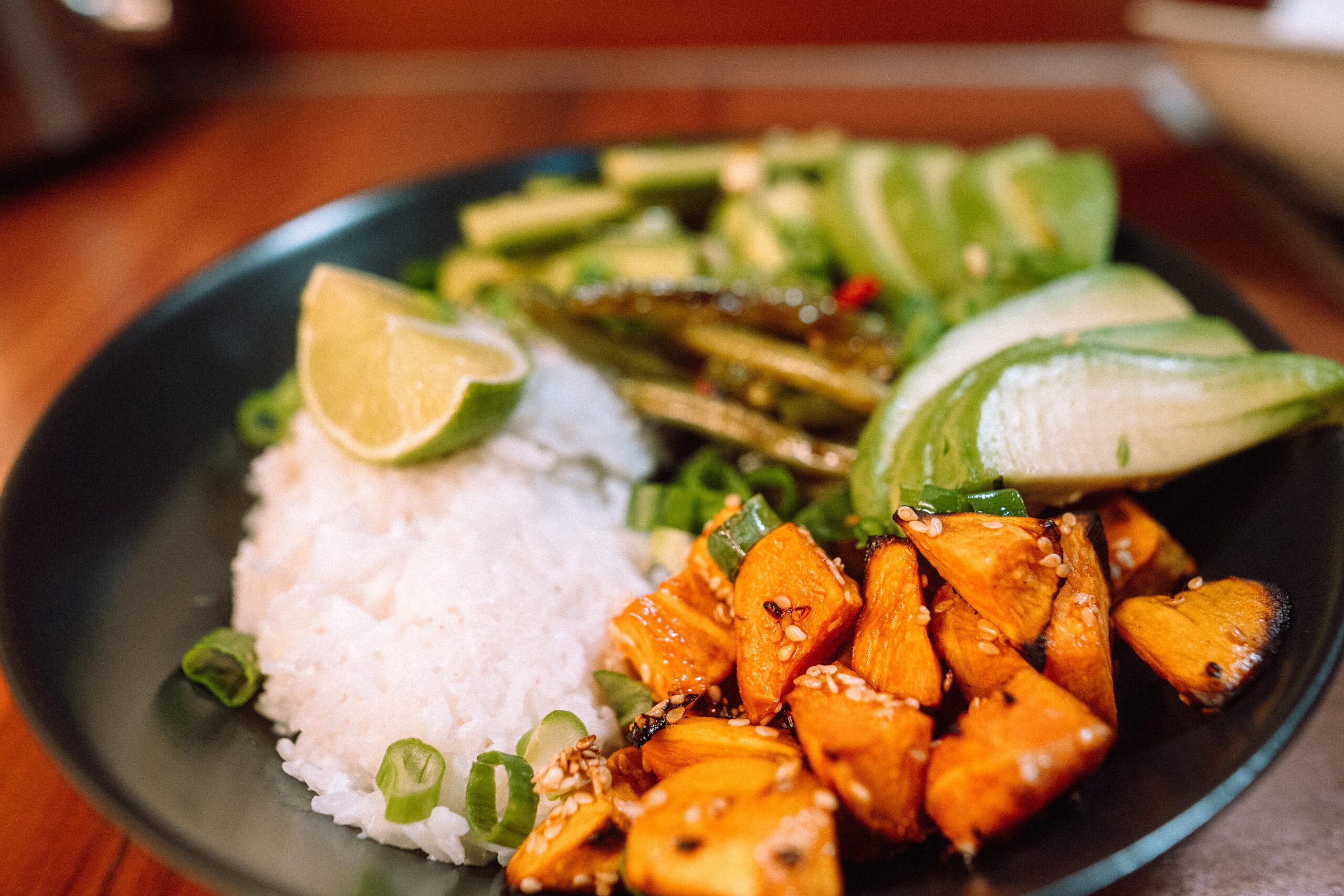Looking to enhance your health with plant-based options? Look no further! In this article, we will explore a range of vegan-friendly health boosters that are not only delicious but also packed with nutrients. Whether you’re a committed vegan or simply looking to incorporate more plant-based foods into your diet, these powerful boosters will help you feel your best. From nutrient-rich superfoods to versatile ingredients, we’ve got you covered. So, let’s embark on this journey to discover the amazing world of vegan-friendly health boosters!
Protein-rich plant-based foods
Lentils
Lentils are an excellent source of plant-based protein, making them a must-have in your vegan diet. Packed with essential amino acids, lentils can provide you with the energy and nutrients you need to stay active and strong. They are also rich in fiber, which aids in digestion and helps regulate blood sugar levels. Lentils are incredibly versatile and can be used in soups, stews, salads, and even as a meat substitute in burgers and tacos.
Quinoa
Quinoa is not only a complete protein but also a great source of essential vitamins and minerals. This ancient grain is rich in fiber, iron, and magnesium, which are essential for overall health and well-being. Quinoa is easy to cook and can be enjoyed as a side dish, as a base for buddha bowls, or even added to salads and stir-fries to boost their nutritional content.
Tofu
Tofu is a staple in many vegan diets, known for its high protein content and versatility in cooking. Made from soybeans, tofu is packed with amino acids, iron, and calcium. It is a great meat substitute that can be grilled, baked, or stir-fried, giving you a nutritious and satisfying meal. Adding tofu to your diet can help meet your protein needs while supporting muscle growth and repair.
Chickpeas
Chickpeas, also known as garbanzo beans, are not only delicious but also rich in protein and fiber. These legumes are a popular ingredient in dishes like hummus and falafel. They provide a good source of essential nutrients such as folate, copper, and manganese. Chickpeas can be used in a variety of dishes, including soups, salads, and curries, making them a versatile and nutritious addition to your vegan diet.
Hemp seeds
Hemp seeds are a powerhouse of nutrition, containing all essential amino acids and providing an excellent source of protein. They are also rich in omega-3 fatty acids, which are known for their anti-inflammatory properties. Hemp seeds can be sprinkled on salads, blended into smoothies, or used as a topping for cereals and yogurt. Incorporating hemp seeds into your diet can help support muscle growth, boost brain function, and promote overall health and wellness.
Essential vitamins and nutrients
Vitamin B12
Vitamin B12 is an essential nutrient that plays a crucial role in the production of red blood cells and the proper functioning of the nervous system. While it is predominantly found in animal-based products, there are vegan-friendly sources of vitamin B12, such as fortified plant-based milks, breakfast cereals, and nutritional yeast. It is important to ensure an adequate intake of vitamin B12 through supplementation or consuming fortified foods to prevent deficiency.
Iron
Iron is essential for carrying oxygen throughout the body and maintaining healthy blood cells. While plant-based sources of iron might not be as easily absorbed as the iron found in animal products, it is still possible to obtain sufficient iron on a vegan diet. Foods such as lentils, spinach, tofu, and quinoa are excellent plant-based sources of iron. Pairing iron-rich foods with vitamin C-rich foods, like citrus fruits or bell peppers, can enhance iron absorption.
Calcium
Calcium is crucial for maintaining strong bones and teeth, as well as supporting proper muscle and nerve function. Vegan sources of calcium include fortified plant-based milks, tofu, dark leafy greens like kale and spinach, and calcium-set tofu. It is important to ensure an adequate calcium intake through a well-planned vegan diet or supplementation, especially for those who do not consume dairy products.
Omega-3 fatty acids
Omega-3 fatty acids are essential fats that play a vital role in brain health and reducing inflammation in the body. While fatty fish is a common source of omega-3s, vegans can obtain them from plant-based sources such as flaxseeds, chia seeds, and walnuts. These foods are rich in alpha-linolenic acid (ALA), a type of omega-3 fatty acid. Including these foods in your diet can help support brain function, heart health, and overall well-being.
Vitamin D
Vitamin D is crucial for bone health, immune system function, and the body’s ability to absorb calcium. While the main source of vitamin D is sunlight, it can be challenging for vegans to obtain sufficient amounts, especially during the winter months or for those living in areas with limited sunlight. Fortified plant-based milks, breakfast cereals, and supplements can be good sources of vitamin D for vegans. It is important to regularly test vitamin D levels and consult a healthcare professional regarding supplementation if necessary.

Antioxidant-packed fruits and vegetables
Blueberries
Blueberries are not only delicious but also incredibly nutritious. They are packed with antioxidants that help protect the body against damage from harmful free radicals. These antioxidants can help reduce the risk of chronic diseases, improve brain health, and support healthy aging. Adding blueberries to your diet, whether fresh or frozen, can provide a burst of flavor and a wealth of health benefits.
Spinach
Spinach is a nutrient-dense leafy green that is rich in antioxidants, vitamins, and minerals. This superfood is particularly high in vitamin K, vitamin A, and iron. Including spinach in your diet can help support healthy eyes, bones, and blood clotting. Spinach can be enjoyed raw in salads, sautéed as a side dish, or added to smoothies for a boost of green goodness.
Kale
Kale has gained popularity as a nutritional powerhouse, and for good reason. This leafy green is low in calories and high in nutrients, including vitamins A, C, and K. It is also a great source of antioxidants and fiber. Kale can be enjoyed raw in salads, baked into crispy kale chips, or blended into smoothies for an extra nutrient kick. Incorporating kale into your diet can contribute to overall health and well-being.
Broccoli
Broccoli is often referred to as a “superfood” due to its impressive nutritional profile. It is loaded with vitamins, minerals, and antioxidants that promote good health and protect against chronic diseases. Broccoli is an excellent source of vitamin C, vitamin K, and fiber. Whether steamed, roasted, or added to stir-fries, broccoli is a versatile vegetable that can be enjoyed in various dishes to boost your nutrient intake.
Berries
Berries, such as strawberries, raspberries, and blackberries, are packed with antioxidants, fiber, and vitamins. They are low in calories but high in nutritional value, making them an excellent choice for a healthy snack or addition to meals. Berries can be enjoyed fresh, added to smoothies, or used as a topping for oatmeal or yogurt. Incorporating a variety of berries into your diet can provide numerous health benefits, including improved heart health and brain function.
Healthy fats for brain function
Avocado
Avocados are not only delicious but also rich in healthy fats, particularly monounsaturated fats. These fats are known to support brain function, reduce inflammation, and improve heart health. Avocados are also a good source of fiber, vitamins, and minerals. Whether sliced in salads, mashed on toast, or blended into smoothies, avocados are a versatile fruit that can provide a creamy and nutritious addition to your meals.
Chia seeds
Chia seeds are tiny powerhouses of nutrition, packed with omega-3 fatty acids, fiber, and antioxidants. They are an excellent source of plant-based protein and can help promote healthy digestion and reduce inflammation in the body. Chia seeds can be added to smoothies, oatmeal, or used as a vegan egg substitute in baking. Including chia seeds in your diet can contribute to improved brain function, heart health, and overall well-being.
Walnuts
Walnuts are a rich source of healthy fats, including omega-3 fatty acids, which are essential for brain health and reducing inflammation. They are also packed with antioxidants, vitamins, and minerals. Consuming a handful of walnuts as a snack or adding them to salads, oatmeal, or baked goods can provide a satisfying crunch and a dose of nutritious goodness.
Coconut oil
Coconut oil is a popular plant-based fat that is known for its medium-chain triglycerides (MCTs). These MCTs can be quickly absorbed by the body and used as a source of energy. Coconut oil is also high in lauric acid, which has antibacterial and antiviral properties. It can be used in cooking, baking, or even added to smoothies as a delicious and healthy addition to your diet.
Flaxseeds
Flaxseeds are rich in omega-3 fatty acids, fiber, and antioxidants. They can help reduce inflammation, support heart health, and improve digestion. Flaxseeds can be ground and added to smoothies, baked goods, or sprinkled on top of salads or oatmeal. Including flaxseeds in your diet can provide a wide range of health benefits and contribute to overall well-being.

Natural sources of energy
Bananas
Bananas are a fantastic natural source of energy due to their high carbohydrate content, which provides a quick and sustained release of energy. They are also rich in potassium, which helps maintain proper muscle function and regulate blood pressure. Whether eaten alone as a snack or blended into smoothies and desserts, bananas are a versatile fruit that can give you that much-needed boost of energy.
Dates
Dates are nature’s candy and an excellent source of natural energy. They are high in carbohydrates, fiber, and natural sugars, which provide a quick burst of energy. Dates also contain essential minerals such as potassium and magnesium, which are essential for muscle function and hydration. They can be enjoyed on their own as a snack or used as a natural sweetener in baking and desserts.
Oats
Oats are a complex carbohydrate that provides a slow and steady release of energy. They are also high in fiber, which helps keep you feeling full and satisfied. Oats are a versatile grain that can be enjoyed as overnight oats, oatmeal, or added to smoothies, baked goods, and granola. Incorporating oats into your diet can help sustain energy levels and support healthy digestion.
Sweet potatoes
Sweet potatoes are a nutritious root vegetable that is packed with complex carbohydrates, fiber, and essential vitamins such as vitamin A and vitamin C. They provide a slow release of energy and can help stabilize blood sugar levels. Whether baked, boiled, or mashed, sweet potatoes are a delicious and filling option that can provide sustained energy throughout the day.
Maca powder
Maca powder is derived from the maca root, a Peruvian plant known for its energizing properties. It is rich in vitamins, minerals, and antioxidants that can help boost energy levels and enhance physical performance. Maca powder can be added to smoothies, oatmeal, or used as a natural energy booster in beverages. Including maca powder in your diet can provide a natural and sustained source of energy.
Gut-friendly foods
Yogurt alternatives
Yogurt alternatives, made from plant-based ingredients such as soy, coconut, or almond, are a great option for vegan-friendly gut-friendly foods. They contain probiotics, which are beneficial bacteria that promote a healthy gut microbiome. Probiotics can support digestion, boost the immune system, and improve overall gut health. Yogurt alternatives can be enjoyed on their own, added to smoothies, or used as a creamy topping for desserts and bowls.
Fermented foods
Fermented foods like sauerkraut, tempeh, and kimchi are rich in probiotics and can provide a wide range of health benefits. Probiotics help support a healthy balance of bacteria in the gut, improve digestion, and boost the immune system. Including fermented foods in your diet can help promote a healthy gut microbiome and overall gut health. They can be enjoyed as a side dish, added to salads or sandwiches, or used as a topping for wraps and bowls.
Legumes
Legumes, such as lentils, chickpeas, and beans, are excellent sources of fiber and can promote healthy digestion. They contain prebiotics, which are compounds that nourish the beneficial bacteria in the gut. Consuming legumes regularly can support a healthy gut microbiome, improve bowel movements, and reduce the risk of digestive disorders. Legumes can be incorporated into soups, stews, salads, or used as a base for plant-based burgers and tacos.
Sauerkraut
Sauerkraut is a fermented cabbage that is rich in probiotics and enzymes, making it a gut-friendly food. It can help promote a healthy balance of bacteria in the gut, improve digestion, and support overall gut health. Sauerkraut can be enjoyed as a side dish, added to sandwiches or wraps, or used as a topping for bowls and salads.
Kimchi
Kimchi is a traditional Korean dish made from fermented vegetables, such as cabbage and radishes. It is a probiotic-rich food that provides numerous health benefits for the gut. Kimchi can help improve digestion, boost the immune system, and support a healthy gut microbiome. It can be enjoyed as a side dish, added to stir-fries or rice bowls, or used as a flavor-packed ingredient in various dishes.

Inflammation-fighting ingredients
Turmeric
Turmeric is a vibrant yellow spice that contains a compound called curcumin, known for its powerful anti-inflammatory properties. Curcumin can help reduce chronic inflammation in the body and alleviate symptoms associated with inflammatory conditions such as arthritis. Turmeric can be added to curries, smoothies, and golden milk for its distinct flavor and health benefits.
Ginger
Ginger is another powerful anti-inflammatory ingredient that has been used for centuries as a natural remedy for various ailments. It contains potent compounds called gingerols that help reduce inflammation and relieve pain. Ginger can be added to teas, stir-fries, soups, or used as a flavoring in dishes for its unique taste and health-promoting properties.
Garlic
Garlic not only adds flavor to dishes but also offers several health benefits, including anti-inflammatory properties. It contains sulfur compounds that have been shown to reduce inflammation in the body and support overall health. Garlic can be added to sauces, dressings, marinades, and roasted vegetables to enhance both taste and health benefits.
Cayenne pepper
Cayenne pepper contains a compound called capsaicin, which gives it its fiery heat and anti-inflammatory properties. Capsaicin has been found to reduce inflammation, relieve pain, and improve circulation. Cayenne pepper can be used to add heat to dishes, such as sauces, soups, and stews, or sprinkled on roasted vegetables for an extra kick of flavor and health benefits.
Pineapple
Pineapple contains an enzyme called bromelain, which has been shown to have potent anti-inflammatory effects. Bromelain can help reduce swelling, improve digestion, and ease symptoms associated with inflammatory conditions. Pineapple can be enjoyed fresh, added to smoothies, or used in fruit salads and savory dishes for a tropical twist and its inflammation-fighting properties.
Heart-healthy options
Oatmeal
Oatmeal is a heart-healthy breakfast option that is rich in soluble fiber, which can help lower cholesterol levels. It also contains antioxidants and minerals that support heart health, such as magnesium and potassium. Starting your day with a bowl of oatmeal topped with fruits and nuts can provide a nourishing and heart-healthy meal.
Beans
Beans, including kidney beans, black beans, and chickpeas, are excellent sources of soluble fiber and plant-based protein. Consuming beans regularly can help lower cholesterol levels, regulate blood pressure, and reduce the risk of heart disease. They can be added to soups, salads, or used as a base for plant-based burgers and chili for a heart-healthy and filling meal.
Almonds
Almonds are a heart-healthy nut that is rich in monounsaturated fats, fiber, antioxidants, and minerals, including magnesium and potassium. These nutrients promote heart health by reducing bad cholesterol levels, inflammation, and oxidative stress. Almonds can be enjoyed as a snack, added to salads or stir-fries, or used to make almond butter for a heart-healthy alternative to traditional spreads.
Flaxseed oil
Flaxseed oil is rich in omega-3 fatty acids, which can help reduce inflammation, lower blood pressure, and improve heart health. It is also a good source of lignans, which are antioxidants that can have protective effects on the heart. Flaxseed oil can be used as a dressing for salads, drizzled on roasted vegetables, or added to smoothies for a heart-healthy boost.
Dark chocolate
Dark chocolate, with a high cocoa content, is a delicious and heart-healthy treat. It contains flavonoids, which are antioxidants that have been shown to reduce blood pressure, improve blood flow, and lower the risk of heart disease. Choosing dark chocolate with at least 70% cocoa content and limiting consumption to moderate amounts can provide both indulgence and heart-healthy benefits.
Hydration aids
Watermelon
Watermelon is a hydrating fruit that consists mainly of water, making it an excellent choice for staying hydrated. It is also rich in electrolytes, such as potassium and magnesium, which help maintain proper fluid balance in the body. Enjoy watermelon on its own as a refreshing snack or use it as the main ingredient in smoothies, salads, and fruit bowls.
Coconut water
Coconut water is a natural and hydrating beverage that is packed with electrolytes, such as potassium and sodium. It can replenish electrolytes lost during physical activity or in hot weather, making it a great alternative to sports drinks. Coconut water can be enjoyed on its own or used as a base for smoothies or refreshing summer cocktails.
Cucumber
Cucumber is a hydrating vegetable that contains a high water content and numerous antioxidants. It can help keep you hydrated and satisfy thirst while providing essential vitamins and minerals. Cucumber slices can be added to water or enjoyed in salads, sandwiches, or as a crunchy snack for a refreshing and hydrating boost.
Lemon water
Lemon water is a simple and refreshing way to stay hydrated. It adds a burst of flavor to plain water and provides a dose of vitamin C. Lemon water can be enjoyed hot or cold and is a great option for those who find it challenging to drink enough water throughout the day.
Herbal teas
Herbal teas, such as chamomile, peppermint, and hibiscus, are hydrating alternatives to sugary beverages. They can be enjoyed hot or cold and offer a variety of flavors and health benefits. Herbal teas can help promote hydration while providing antioxidants and calming effects. Experiment with different herbal teas to find your favorites and stay hydrated throughout the day.
Immune system boosters
Citrus fruits
Citrus fruits, such as oranges, grapefruits, lemons, and limes, are well-known for their high vitamin C content. Vitamin C is an essential nutrient that supports the immune system and helps protect against common illnesses. Including a variety of citrus fruits in your diet can provide a natural boost to your immune system and overall health.
Garlic
Garlic is not only a flavorful ingredient but also known for its immune-boosting properties. It contains compounds that have been shown to enhance immune function and reduce the duration and severity of cold and flu symptoms. Adding garlic to your meals, whether raw, cooked, or as a seasoning, can provide you with its immune-boosting benefits.
Green tea
Green tea is renowned for its high concentration of antioxidants, particularly a type called catechins, which have antibacterial and antiviral properties. Drinking green tea regularly can support a healthy immune system and protect against cellular damage. Enjoy a cup of hot or iced green tea throughout the day for a refreshing and immune-boosting beverage.
Mushrooms
Mushrooms, such as shiitake, maitake, and reishi, have long been used in traditional medicine for their immune-boosting properties. They contain beta-glucans, which are compounds that enhance immune function and have anti-inflammatory effects. Including a variety of mushrooms in your diet, whether cooked in dishes or consumed as supplements, can provide immune-supporting benefits.
Ginger
Ginger is not only an inflammation-fighting ingredient but also has immune-boosting properties. It contains compounds that can help support immune function and reduce the risk of infections. Adding ginger to teas, soups, stir-fries, or using it as a flavoring in various dishes can provide both a unique taste and immune-enhancing benefits.
Incorporating vegan-friendly health boosters into your diet can provide a wide range of benefits for your overall health and well-being. From protein-rich plant-based foods to antioxidant-packed fruits and vegetables, there are plenty of delicious and nutritious options to choose from. By prioritizing essential vitamins and nutrients, incorporating healthy fats, natural sources of energy, gut-friendly foods, inflammation-fighting ingredients, heart-healthy options, hydration aids, and immune system boosters, you can enhance your diet in a way that supports optimal health. Experiment with different ingredients and recipes to not only nourish your body but also enjoy a variety of flavors and textures. Remember to consult with a healthcare professional or registered dietitian for personalized advice and guidance on your specific dietary needs. Enjoy the journey towards a healthier and happier you with these vegan-friendly health boosters.




